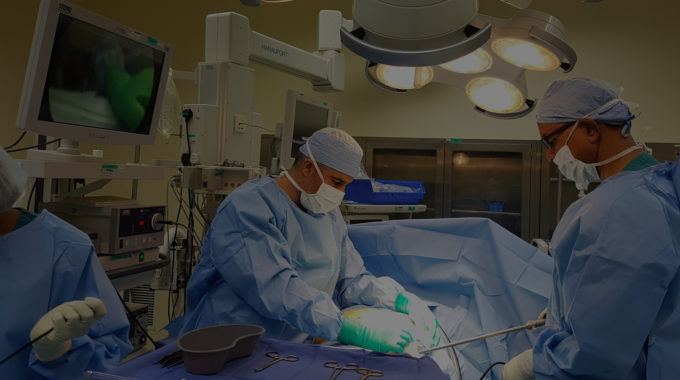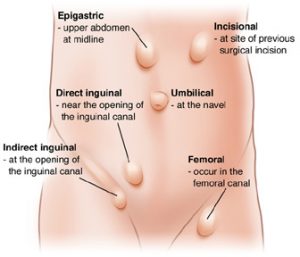
9 Tips to Help You Have a Bowel Movement After Hernia Surgery
The first time I had open hernia surgery, I knew very little going into the process. I was only 18 years old and figured if there was anything I really needed to know or expect, my doctor would tell me before surgery. Luckily, most teenagers’ bodies can recover from routine surgery procedures rather quickly as long as everything goes as planned.
And for the most part, my hernia surgery recovery went about as smooth as possible. However, there was one huge problem I had that was very unexpected: constipation. Nobody told me beforehand that constipation was common after hernia surgery if you don’t plan beforehand. All of a sudden, I felt like I needed to have a bowel movement the night I got home from the hospital, but I couldn’t! It was incredibly uncomfortable and I had no control over my bowel movements at the time.
About a year later I was talking with another friend that had hernia surgery a few months earlier, and I had to know: did he get constipated after his hernia surgery too? A little to my surprise, he said yes! When he described how he felt, it sounded exactly like my situation several months earlier after my hernia surgery. So if constipation is so common after hernia surgery and many people that are recovering from hernia surgery experience it, why doesn’t your doctor tell you about if beforehand?
Like we have talked about before, surgeons are usually great at performing surgery, but they don’t always do a great job of communicating with their patients what to expect, which is a shame because it’s a pretty big part of the job. That’s why we want to give you our 9 tips on how to help you have a bowel movement after hernia surgery. Hopefully you read this article before your hernia surgery and were thinking ahead about how to prevent constipation, but if you just got around to reading this after your hernia surgery, here are our best tips to relieve constipation during your hernia surgery recovery.
Relieving Constipation After Hernia Surgery
1) Drink water
When you are constipated, your stool is hardened and won’t pass through your digestive system. If you are dehydrated, this will just compound the problem and make it even worse. Once you get back from the hospital, you should start drinking water so that you can re-hydrate your body. Additionally, when you take your prescribed pain medications, make sure and drink a full 8-ounce glass of water. Pain medications are unfortunately one of the causes of constipation, so you need to drink as much water as necessary to stay hydrated. Water can be very effective in helping you have a bowel movement when you are constipated.
2) Drink prune juice
If you have been drinking plenty of water and don’t feel dehydrated, the next best fluid to drink to help relieve constipation is prune juice. Prunes are very rich in fiber, which is what helps you have a bowel movement. Prunes also contain sorbitol which help speed up the process of a bowel movement. Be careful not to overdo it with prune juice though. Drinking about 8 to 10 ounces of prune juice should be enough, and if that doesn’t work then you may have to try something else. Moderation is key will all of these tips.
3) Eat foods that are rich in fiber
Eating foods that are rich in fiber is something that you should be doing already on a daily basis for a healthier lifestyle. During your recovery it will be easy to eat pizza, cheeseburgers and fries and drink milkshakes, but this will not help you have bowel movements. Fiber-rich foods like fruits, vegetables, whole grains and beans are incredibly effective at softening your stools and promoting a bowel movement. In fact, you should be applying this tip to your everyday life!
4) Eat yogurt
Another healthy food you can eat while constipated that will help you have a bowel movement is yogurt. No, not frozen yogurt! Plain yogurt has healthy bacteria in it that helps your digestive system.
5) Olive oil
If you are having meals prepared by someone, ask them to add some olive oil to whatever they are making. Olive oil has healthy fats in it that will help you pass a stool. We’ve even heard of people eating a spoonful of olive oil by itself. Essentially, the olive oil acts as a lubricant and helps get any hardened stool moving again. We’ve never tried it, but if nothing else is working maybe it’s worth a shot!
6) Take a walk
Taking a brief walk can work wonders to help relieve constipation. Just by getting your body moving around a little, it can get your digestive system get going again and move the hardened stool around in your stomach. Don’t overdo it though. We recommend just walking around your house or apartment for around 5 to 10 minutes at a time. Taking a walk will help with your constipation, but it is also helping promote blood flow with your recovery from hernia surgery at the same time so you are killing two birds with one stone.
7) Take a stool softener
If you have read our Before Hernia Surgery article about constipation, you would know that we recommend buying some stool softeners before your surgery. You should consult your surgeon and make sure that it is safe for you to take a stool softener, but if they give you the go ahead we recommend taking a stool softener soon after your surgery. Stool softeners do exactly what it sounds like: they soften your stools. Stool softeners are great because they are still a somewhat conservative approach. They do not force you to have a bowel movement but instead just soften your stool so that it will pass easier. Make sure and follow the directions on how many and how often to take the stool softener though. Do not expect immediate results with a stool softener, but they do help if you give them time. Because they take a little time though, we recommend taking one relatively soon after surgery when you get home even if you are not constipated yet.
8) Talk to your doctor about a laxatives
Laxatives are a more extreme approach to the stool softener and you should consult with your surgeon before you use a laxative. While stool softeners just soften your stool, laxatives act as a stimulant and force you to have a bowel movement. Laxatives are pretty effective at getting you to have a bowel movement, but they do have side effects. Laxatives should be a last resort and you should check with your doctor before taking one.
9) Sit on the toilet
Sit on the toilet? Is this really a tip? Yes! Constipation is a terrible and uncomfortable feeling, especially when you are recovering from hernia surgery and have such little control over your bowels. However, sitting on the toilet can help trigger muscles in your body that says it is time for a bowel movement. Be patient though. So grab a book, relax and forget about what you’re doing and maybe your body will take care of the problem for you. Do not strain and try to force a bowel movement though as you do not want to do any damage to your repaired hernia.
Be Patient If You Can’t Immediately Have A Bowel Movement
It is a very frustrating feeling whenever you are constipated, and it is even worse when you are recovering from hernia surgery and constipated. That is why the best advice we can give is to try and prevent constipation before it begins. Make sure you are eating fiber-rich foods and drinking plenty of water in the days leading up to your surgery, and continue to do so after your surgery. Also, talk with your surgeon about taking a stool softener after surgery. They should be fine with this and if so, it can go a long way in preventing constipation. If you do get constipated, do not try and strain to have a bowel movement though as this could do damage to your recently repaired hernia. Do your best to relax, try some of these tips and hopefully you will be able to have a bowel movement soon after.


